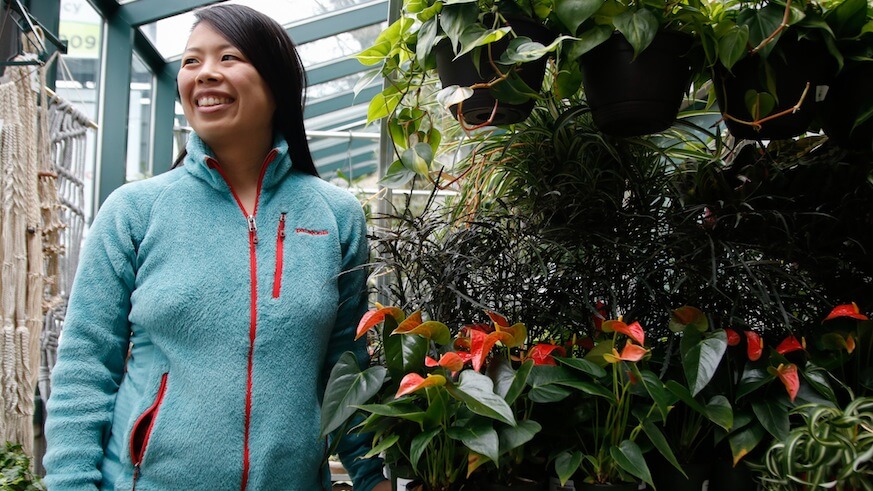When Peicha Chang, owner of Vault + Vine in East Falls, was first opening her flower shop some eight years ago, she had some qualms about advertising her business as an environmentally friendly one. She didn’t want to look like she was “greenwashing” — exploiting an environmental message to make a buck (like Volkswagen advertising “clean diesel” cars that the company later admitted were rigged to cheat emissions tests).
“I didn’t want to advertise my business as a sustainable business or a green business at the time,” said Chang, 36. “I wanted to avoid it. I just felt like, ‘This is how my business runs.’ I didn’t feel strongly that I necessarily wanted to associate it with those things.”
But that changed when she got involved with the Sustainable Business Network of Greater Philadelphia (SBN), and found not just clear guidance on how to define sustainable goals for her business, but a community.
“What I really felt and got out of SBN when I first joined as a new business was just finding that network of business-owners who thought similarly, the triple bottom line [people, planet, profit], not necessarily entirely profit-driven as a business, and wanting to do work beyond just profit, with the community and with the world,” she said. “It was kind of the answer I had been looking for.”
SBN was founded in 2001 by Judy Wicks, the restaurateur behind the White Dog Café. After 17 years, SBN includes some 360 member businesses in the Greater Philadelphia area, ranging from smaller businesses like Chang’s combo-flower and coffee shop — where all employees earn a living wage and get benefits — to Yards Brewing Company, which is 100 percent wind-powered, strives to recycle their materials and sends spent grains to bakeries and farmers to be reused.
SBN’s work includes bringing together like-minded businesses to help each incorporate sustainable values into a realistic economic model that can survive in an era of big-box stores and mega-corporations.
“Not everyone has the luxury of being able to decide on this organic, fair-trade product,” acknowledged Anna Shipp, executive director of SBN. “Can Philadelphians, with a 27 percent poverty rate, afford that?”
But Shipp believes that, as more and more businesses see how sustainable practices can make economic sense, by saving money long-term and attracting lifelong customers, the sustainable business “ecosystem” will become more affordable and widely accepted.
“When you see ‘local’ flags on produce at Walmart, that is a sea change,” Shipp said. “Let’s shift how we use capitalism. We can use business as a force for good.”
SBN will celebrate its 17th anniversary and the “localism movement and impact economy” at their annual SustainaBall on March 9. Visit SBNPhiladelphia.com for more information.




























